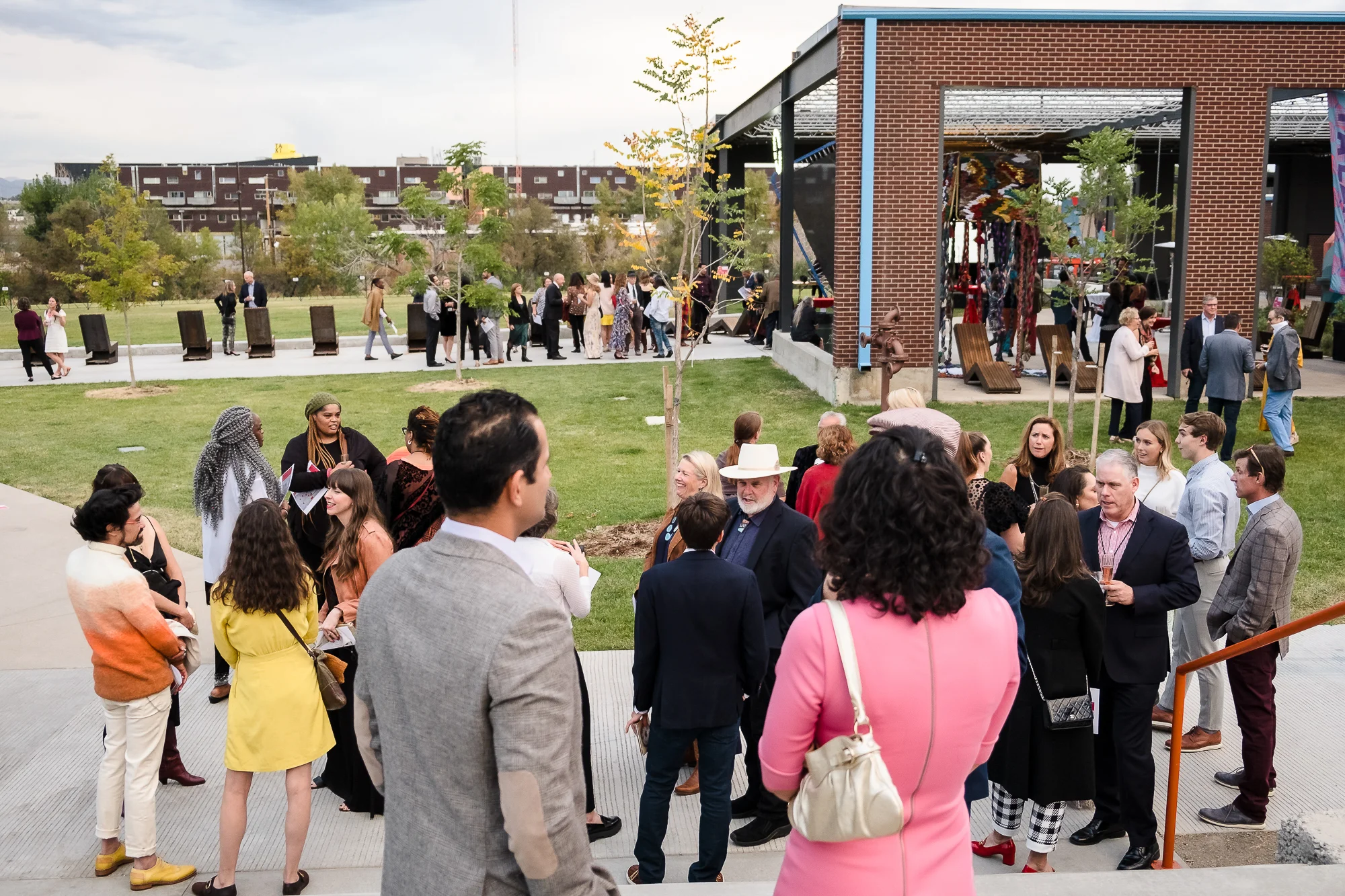"No Guts No Story" - Artistic Director Jada Suzanne Dixon Gets Curious - PART 2
May 13, 2025
time
min read time
.png)
Read Part 1 of "Artistic Director Jada Suzanne Dixon Gets Curious" HERE.
When Dixon took the reins of the company in the fall of 2022, she became only the second artistic director in the theater’s history. A longtime company member, she was a shrewd choice to steward Curious’ thoughtfully wrought legacy but also shepherd the future of the city’s most consistently daring theater. She could nurture the soul of the theater but also begin envisioning how the company could expand the meaning of its flinty mantra, “Not Guts, No Story.”
In selecting Dixon, the company embraced the promise of its first new leader in decades and at least initially dodged the challenges so many regional theaters were facing post-pandemic. During the first months of Dixon’s tenure, Walton remained on as a paid consultant and Covington continued as the education director. Dixon and Walton shared in programming that transition season.
Last summer, headed into her sophomore season as the theater’s sole leader, Dixon was intimately aware of the gift bestowed upon her. After all, the first play the Denver native auditioned for when she returned to her hometown after 10 years in New York City was Paula Vogel’s “How I Learned to Drive.” In a kind of kismet, it was also the maiden production of the nascent company.
“I knew they weren't going to cast me, but I was intrigued. I was like, ooh, that's kind of risky. In Denver? Like, whoa. Okay, I'm going to go audition just so they know, I'm here,” Dixon said over coffee at Park Hill’s Honey Hill Café in July. She hadn’t expected to get cast — and she didn’t. “But they called me in quite a few years. I did, like, all the Denver Stories. In one I played Oprah. It was the one about Elbra Wedgeworth. I think my first show was ‘Paris on the Platte.’”
For over two decades, the theater has produced the works of many of the great contemporary American playwrights. Repeat offenders of the status quo include Vogel, Tony Kushner, Annie Baker, Amy Herzog, Tarell Alvin McCraney, Sarah Ruhl, David Lindsay-Abaire, and Quiara Alegría Hudes. The company recently concluded a run of MacArthur Fellow Dominique Morisseau’s heady, humorous and ouchy play, “Confederates.”
As the rare black female artistic director of a consequential theater company, she’s also been mindful of the weight accompanying her hire: artistic, cultural, both. “I'm a person who likes the work to speak for itself,” said Dixon over coffee last summer. “I think that's part of the pressure that I also felt, is if things fail, regardless of who’s responsible, it will always reflect on me: the first black female leader of this organization. The perception will be that it was me who failed. That can't happen. And I'm also thinking about, how do I set the stage for the person who comes in after me? Because I don't want them, whoever they are, to go through that.”
Critically, Dixon’s seasons have been strong — neither foolhardy or timid. She began her first full season with Tracy Lett’s wild comedy “The Minutes.” In a gesture of artistic camaraderie, she cast the show solely with Curious ensemble members. It was a hit. This year has featured the Morisseau play and a moving staging of Samuel D. Hunter’s wise two-hander “A Case for the Existence of God.” In March, the company’s sure to rile with Bruce Norris’ “Downstate,” about sex offenders. And in May, Dixon will pull off a coup, having snagged the world premiere of Regina Taylor’s one-woman show, “Exhibit.” But even a nimble artistic leader can be stymied by economics.
Last March the company sent out its Season 27 announcement. Accompanying the release was one disclosing its financial woes. “Curious is facing an unprecedented deficit of $250,000 at the end of this fiscal year due to impacts from COVID-19, critical maintenance needs on our historic building, rising costs, and drops in subscriptions, ticket sales, and donations.”
Given the fate of many of the nation’s regional theaters post-pandemic, the letter was received by press and patrons as dismaying. But it also suggested a much-needed candor. It turned out Curious had not yet fully dodged the fate of many of the nation’s regional theaters. But Dixon was ready to chart a way forward. “Curious has embarked on a 3-phase effort of building towards the future,” the letter laid out. “Recovery. Reinvention. Resiliency.”
Then in July, Curious made another disquieting announcement: “We are taking a daring step and putting our cherished Acoma artistic home on the market,” read a statement. “We are not letting go of the richness of what came before, we are steering ourselves towards something ambitious rooted in radical imagination. The pandemic and the after-effects of the pandemic have challenged us to reflect and assess.”
For outsiders, leveraging the equity of a downtown Denver building for future years of economic stability might be a no-brainer. But for the many of the Curious faithful, the most wrenching choice facing Dixon and the company has been, what to do with its aging building. With its declining physical plant, the nearly 130-year-old former church might be an albatross, but it has also been a creative home.
“Would I miss it? Terribly,” said Christy Montour-Larson. “However, I have learned, Curious is more than its founder, and it's more than its building.” Like Dixon, the talented director began her romance with Curious during that maiden season launched with Vogel’s play. In 2022, Montour-Larson became the company’s artistic producer and is currently the education and literary manager.
“In a perfect world, there's a lease back. That's what everybody wants,” she said. A potential move raises other important questions she believes. “Does this Denver metro area, especially people in Denver, believe that Denver is a richer place for having a Curious Theatre Company that exists within its borders? Exist in this neighborhood, in that building?” As of this writing, the building is still for sale.
Read Part 3 of this article by clicking on the button below.
Lisa Kennedy
Lisa Kennedy writes on popular culture among other topics – and has for more than four decades. She was film critic for the Denver Post and later its theater critic. She has been published in the New York Times, Alta magazine, Essence, American Theatre and Variety, among others. She currently conducts nonfiction courses at Lighthouse Writers Workshop and coaches writing. She lives in Denver - the city where she was raised - with her spouse, Becky, and their dogs Jax & Hank.

.png)
























.jpg)
.png)








